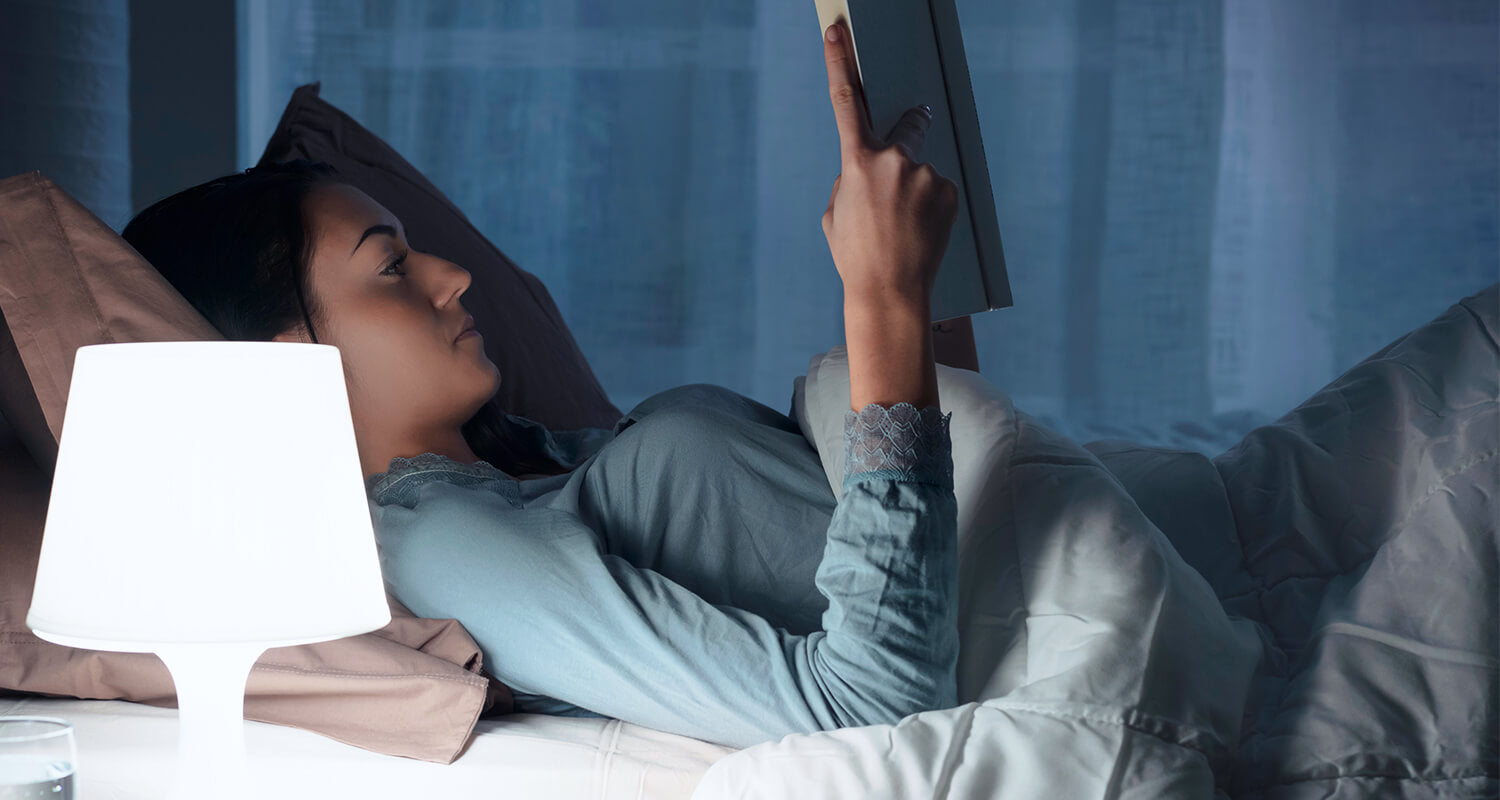
Does music help you fall asleep?
Difficulty falling asleep is one of the most common sleep disorders and can usually be attributed to stress and a lack of relaxation. Calming music or gentle meditation are considered effective remedies for stress-related sleeplessness. Learn here how music really helps you fall asleep and how certain sounds can positively influence sleep.
Table of contents
- Difficulty falling asleep
- Hearing during sleep
- The effect of music
- How music affects body and mind
- How music influences sleep
- Conclusion
1. Difficulty falling asleep
One in five Germans suffers from sleep disorders and their numerous negative consequences for our quality of life, everyday life, performance, and health. An irregular sleep-wake rhythm, stress, or even an unhealthy sleeping environment can disrupt our regeneration at night or prevent us from getting a restful sleep at all. Stress, in particular, disrupts evening relaxation and is often responsible for us having difficulty falling asleep despite being tired. If falling asleep regularly takes longer than 30 minutes after going to bed, experts refer to sleeplessness. You can find more information and tips on sleep disorders here. here.
Numerous home remedies are known to naturally promote the sleep process, and some people consider listening to music an effective way to relax and tune into sleep. But can music really help you fall asleep?
2. Hearing during sleep
During sleep, our brain is working at full speed, and our senses remain active. Our hearing responds to acoustic stimuli in our environment, even during sleep and as we fall asleep, and transmits the perceived signals to the brain. Noise, sounds, and other acoustic signals trigger activation of the nervous system and tend to hinder sleep, which is why a quiet sleeping environment is generally recommended. So, can music actually have a positive effect on sleep?
3. The effect of music
How music affects body and mind

The effect a certain type of music has on us is generally very individual and depends on our personal musical taste. Music influences us humans in fundamentally different ways and can have both a calming and stimulating effect on our mood and well-being. The reason for this lies in our natural emotional response to musical sounds. These activate the emotion-forming limbic system of our brain and thus promote the release of stress-relieving hormones, for example. Studies also show that listening to music also affects our physical well-being and influences, among other things, our heart rate, breathing rate, blood pressure and muscle tension. Calm and melodic sounds can therefore promote both mental and physical relaxation, especially in stressful situations, by activating positive emotions, lowering our blood pressure and heart rate, and slowing our breathing.
How music influences sleep
Because excitement and stress can hinder the process of falling asleep, it's important to calm down and relax sufficiently before going to bed. If we focus on pleasant or soothing music while falling asleep, we can more easily block out distracting stimuli from our sleeping environment, as well as negative thoughts and feelings on an emotional and physical level.This calms you down, promotes relaxation and can support an undisturbed sleep process.
To help you fall asleep, you should generally opt for calming, slow songs or rhythms that don't involve excessive dynamic changes or sudden changes in tone. Especially when a sound stands out from an otherwise calm soundscape, our brain reacts very quickly and puts us on alert, disrupting the process of falling asleep and waking us up. Depending on which sleep phase we are in, our hearing sensitivity can vary. This means that music that we find pleasant while falling asleep can later disrupt our sleep and cause us to wake up.
Tip: Try using a timer or timer function to lower the volume after a while or turn the music off completely.
4. Can music help you fall asleep?
Whether music ultimately works as an effective sleep aid varies from person to person and depends fundamentally on the reasons we lie awake and how sensitive we react to external acoustic stimuli during sleep. Due to their calming effect, melodic and quiet music, as well as meditation, are generally well-suited to counteracting stress and a lack of relaxation and to supporting a peaceful sleep process. Listening to relaxing sounds and melodies or your favorite songs can then simply be incorporated into the Evening routine be integrated to help you relax and quickly find a restful sleep.
Also interesting: How nutrition affects sleep.
5. Conclusion
- The ear processes sounds and noises even during sleep, which is why a quiet sleeping environment is generally recommended.
- Music affects people individually, activates the emotional system and influences important bodily functions such as pulse, heart rate and breathing.
- Calm melodies or meditations can promote relaxation before sleep and facilitate the process of falling asleep.
Best wishes and see you soon!



Leave a comment
This site is protected by hCaptcha and the hCaptcha Privacy Policy and Terms of Service apply.